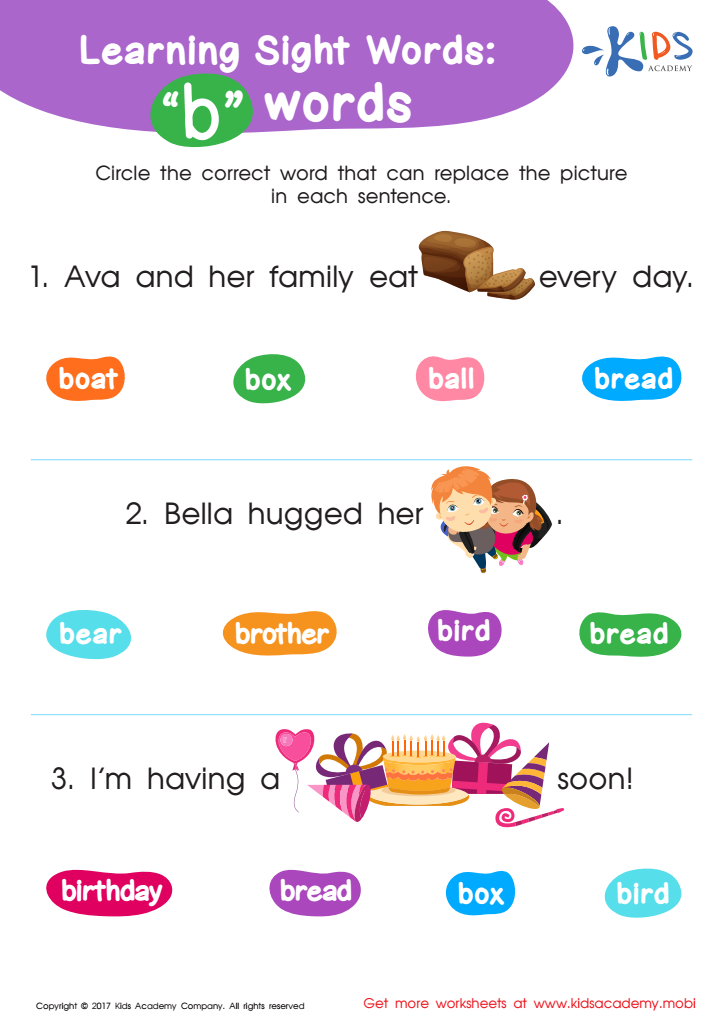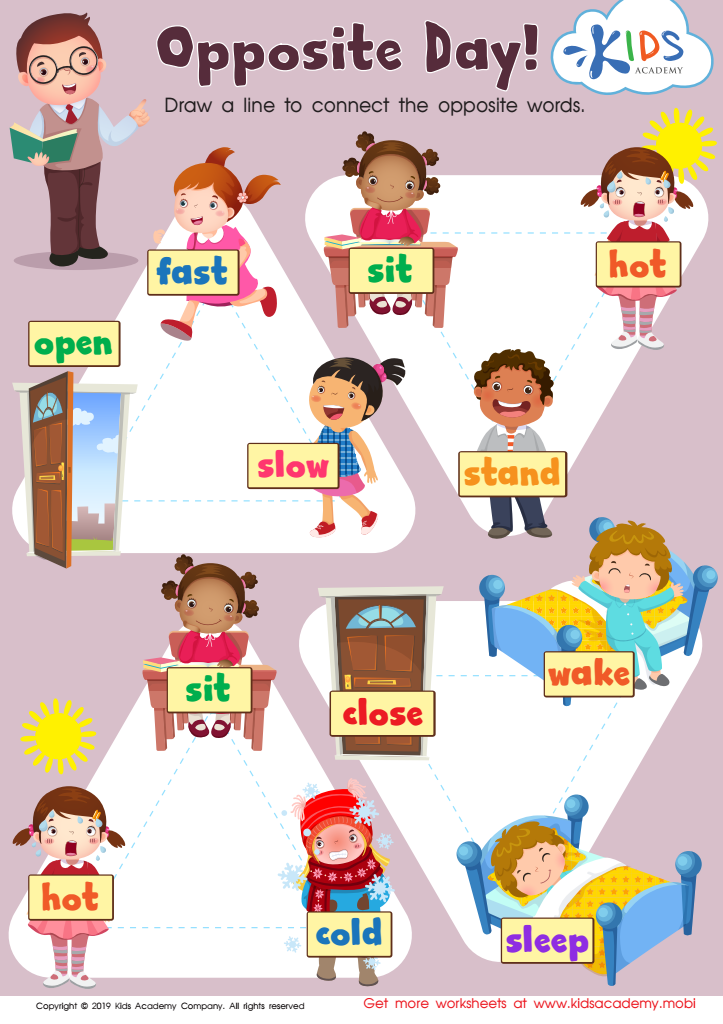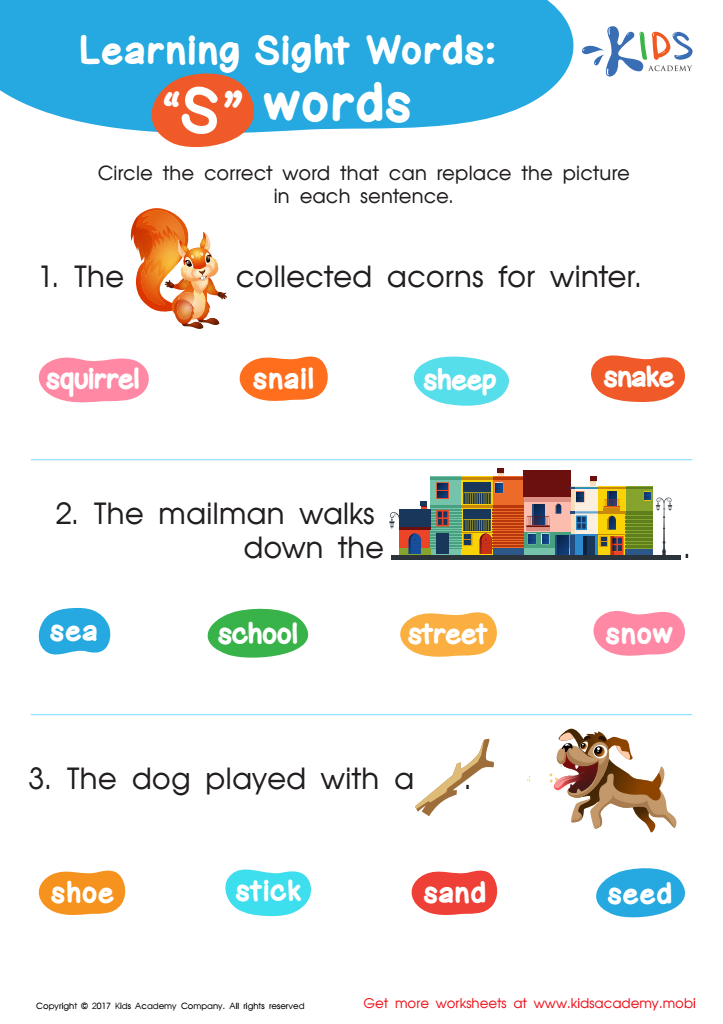Reading skills improvement Normal Building Vocabulary Worksheets for Ages 4-9
3 filtered results
-
From - To
Enhance your child’s reading skills with our engaging Normal Building Vocabulary Worksheets, specifically designed for ages 4-9. These worksheets offer a fun and effective way for young learners to expand their vocabulary and boost their reading confidence. Tailored activities encourage creativity while reinforcing essential language concepts. Each worksheet focuses on interactive exercises that captivate children's interest, making learning enjoyable. Perfect for both classroom and home use, these resources provide parents and educators with valuable tools to track progress and reinforce learning. Unlock your child's potential and foster a lifelong love of reading with our expertly crafted vocabulary worksheets today!


Sight Words Free Worksheet – B Words


Opposite Day Worksheet


S Words Sight Words Worksheet
Parents and teachers play a crucial role in the development of reading skills and vocabulary for children aged 4-9, as these early years are foundational for lifelong learning. Proficient reading and a robust vocabulary directly influence academic success, critical thinking, and effective communication. When children enhance their reading skills, they gain access to a vast world of knowledge, which fosters curiosity and creativity.
Building vocabulary is equally essential; it not only aids comprehension but also helps children articulate their thoughts and emotions more clearly. A rich vocabulary allows kids to engage in meaningful conversations and understand complex ideas, which is vital for their cognitive development. Furthermore, a child with strong reading skills is more likely to cultivate a love for reading, transforming it into a lifelong habit that promotes continuous learning.
Investing time and resources into improving reading and vocabulary skills equips children with the tools they need to navigate the challenges of academia and life. It ensures they do not fall behind, instilling confidence and fostering a sense of achievement. Ultimately, enhancing these skills opens doors to opportunities, empowering children to express themselves and succeed in an increasingly complex world. Thus, it is essential for parents and teachers to prioritize this critical aspect of early childhood education.
 Assign to My Students
Assign to My Students
















